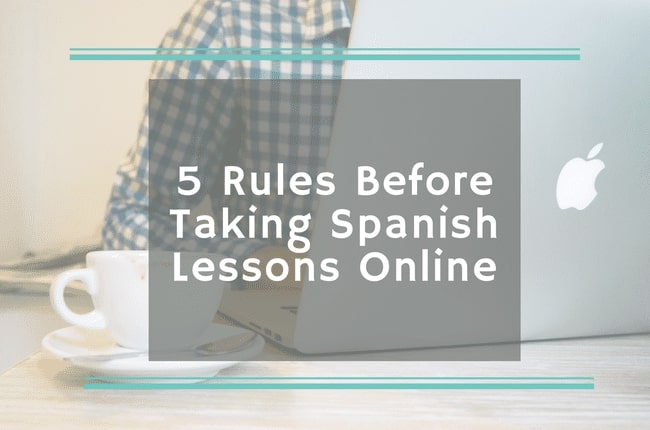Getting Comfortable With Speaking Spanish to Others
Speaking a new language can be intimidating, especially when conversing with native speakers. Spanish, with its regional variations, offers a unique challenge and opportunity to connect with diverse cultures.
For English speakers or those with non-Romance language backgrounds, learning Spanish may seem daunting. however, it is not impossible and one of the best ways to learn Spanish, like any other language, is to live it. Here are some strategies for gaining confidence in speaking Spanish with others.
Immerse Yourself in the Language
One of the easiest ways to adapt to a new language is to experience it, but patience is key as understanding may not come immediately.
Immersion is widely regarded as the most effective way to learn a language, especially Spanish. While traveling to a Spanish-speaking country is ideal, it's not necessary. Create an immersive environment at home by listening to Spanish music, watching movies and series without subtitles, and changing the language settings on your electronic devices. Surrounding yourself with Spanish constantly will help you become familiar with its structure and pronunciation.
To expand your vocabulary, consider reading books originally written in Spanish or translated into Spanish. This allows you to acquire new words while enjoying familiar stories. Start with material suitable for your level of understanding to avoid becoming overwhelmed.
Practice Regularly

Image: Unsplash
Consistent practice is essential for learning any skill and is one of the best ways to learn Spanish at home without traveling. Seek opportunities to speak Spanish daily, even if it's just with yourself. While you don't need to dedicate hours every day to gain a substantial vocabulary, spending at least an hour practicing Spanish daily can accelerate your learning. The key is to engage in conversation, practice speaking in front of a mirror, and develop a system to remember commonly used words.
You can narrate your daily activities, practice common phrases, or even converse with your pet in Spanish. The goal is to keep your language skills active and become comfortable formulating sentences quickly. Another method is to label objects in your home with Spanish names using sticky notes. This allows you to unconsciously read the words and associate them with the objects. You can include pronouns and plural variants, or specify feminine and masculine forms for objects, to deepen your understanding of Spanish from the outset.
Find Conversation Partners

Image: Unsplash
A conversation partner can be invaluable, providing real language practice, instant feedback, and opportunities to improve pronunciation and fluency. Joining a forum or group where you can regularly talk in Spanish is one of the best ways to learn spanish. Being immersed in conversations led by native speakers helps you adapt to various accents, speeds, and colloquial expressions, enhancing your overall language proficiency.
You can find language exchange partners online through language exchange websites or social media platforms dedicated to language learning. Additionally, consider joining local study groups or conversation clubs where you can interact with fellow learners and native speakers in person. Choose someone patient and with whom you feel comfortable to ensure a productive learning experience.
Participating in group activities where Spanish is spoken will allow you to practice in a more relaxed and informal setting. Whether it's joining a book club, a cooking group, or even a sports team, these activities provide opportunities to interact naturally and spontaneously in Spanish, helping you build confidence.
You can explore a variety of topics based on your interests, as diversity enriches the learning experience. However, if you aim to focus on a particular profession or topic relevant to your time in the Hispanic world, you can tailor your participation to strengthen the vocabulary specific to your field or activity.
Don't Be Afraid of Being Wrong
As the iconic Disney Pixar movie, "The Family of the Future," would say, "You learn from failure, but not much from success." This phrase rings especially true when learning a new language; making mistakes is an integral part of the process, and consciously correcting them is essential for gaining fluency.
Fear of making mistakes can be one of the biggest obstacles to speaking a new language. Remember that errors are inevitable and are a natural part of the learning journey. Most people will appreciate your efforts to speak their language and will be willing to help you. Embrace each mistake as an opportunity to learn and improve.
Conclusion
Gaining confidence in speaking Spanish is a process that requires time and dedication. However, with the right strategies and a positive attitude, you can overcome anxiety and embrace the rewarding experience of communicating in a new language. Remember, practice, patience, and enjoying the learning journey are key. Above all, speaking the language is paramount—the more you practice, the easier it becomes to learn new words and improve your skills.












